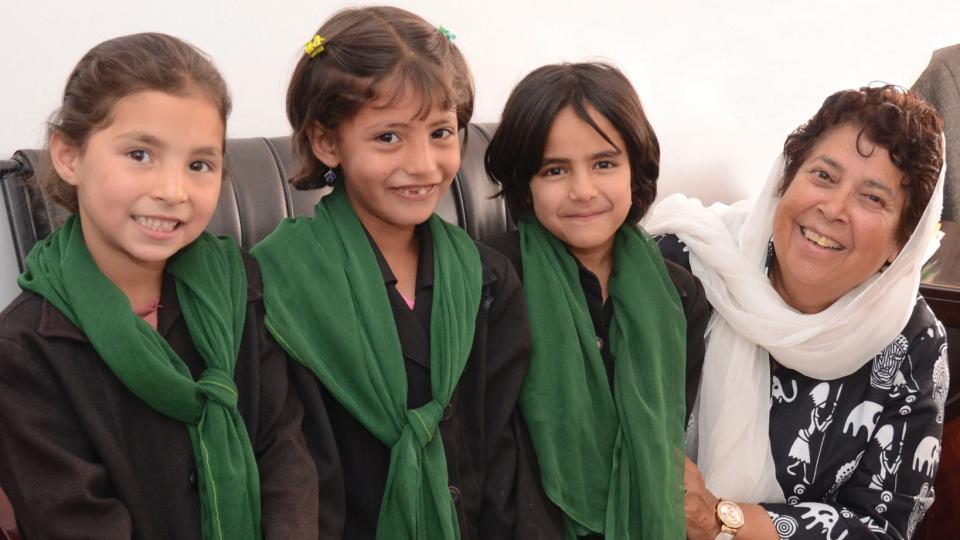A DANGEROUS IDEA OFFERS HOPE FOR GIRLS IN AFGHANISTAN
This story originally appeared in the December 2013 issue of The Rotarian
In 2005, Razia Jan came up with a dangerous idea: to start a free private school for girls in her native Afghanistan. The Taliban were using extreme violence to keep girls from learning. In 2008, the year she opened the school, terrorists in the country -- armed with bombs, poison gas, guns, grenades, and acid -- killed 149 teachers, students, and employees in Afghan schools.

But Jan did not intend to let terrorists stop her. She approached Afghan Ministry of Education officials and persuaded them to donate a piece of land in a village 30 miles outside Kabul. Today, the Zabuli Education Center is in its sixth year and has a roster of more than 400 girls in kindergarten through ninth grade.
Without the school, many of the students never would have had the chance to receive an education. “I can feel a change happening in these girls and in this community,” says Jan, who moved back to Afghanistan after building a successful tailoring business in Duxbury, Massachusetts, USA. “Knowledge is something nobody can steal from them.”
The Rotarian magazine talked with her about her experience launching the school.
The Rotarian: What made you return to Afghanistan to start a school for girls?
JAN: I had seen the conditions and how badly the girls were treated. I had to do something. I thought, “There are no schools for girls here. Why not build one?” At that time, I was the president of the Rotary Club of Duxbury, and we decided to hold a fundraiser. We raised $65,000 in one night. This was in 2005. In 2008, we held two events featuring Khaled Hosseini, author of the novels The Kite Runner and A Thousand Splendid Suns, which helped us raise more than $120,000. The place where we decided to build the school was a community of seven villages, a poor area, and they had never seen a girls’ school. My hope was that this school could help break the cycle of poverty.
Did you encounter any resistance?
JAN: When I first came to this village, a man came up to me and stared at me strangely. He said, “Sister, why are you standing here? Please go inside and sit with our women and have a cup of tea.” I replied, “I’m going to build this school. And I’m going to be standing here to build it. You have to get used to it. I don’t think I’m going to sit inside.” That was one of the first times a woman had challenged these men. The day before we opened the school, more men approached me. This time, there were four of them. “I hope you realize you still have a chance to change this school into a boys’ school,” they said to me. “Boys are the backbone of our community.” I replied, “Unfortunately, you are all blind. I want to give you some sight.” They turned around, and I never saw them again.
What changes has your school brought about in the girls and in the community?
JAN: One of the first things we do is to teach the girls how to write their father’s name. Then they take it home to show their parents. The fathers have come up to me, crying: “These girls can write my name, and I can’t.” That is a big moment. I have proved to the men of these seven villages that this is the best thing that’s happened for their daughters -- to become educated. The girls are more independent. They can talk to their father or talk to their mother and share their opinions. They can speak for themselves now. We were having a discussion in class one day and one of them stood up and said, “You shouldn’t worry about what the world thinks.” They couldn’t say this before.
What does the future look like for these girls?
JAN: I don’t want their education to end here. I would like them to go to college, but I see the difficulty in that. Next year, when the oldest girls reach 10th grade, I want to have a plan to extend their education by building a computer science center or a nursing facility. I will bring education to them if they can’t attend college. I will continue to give them as much freedom as I can, and a place in society where they can speak out. Gently but surely, we will give them a more promising future.
Learn more about the Zabuli Education Center project.